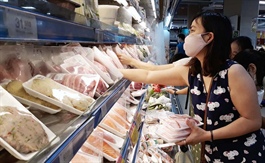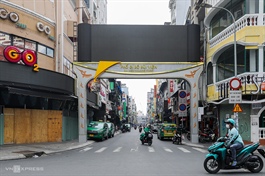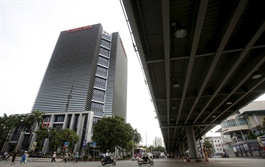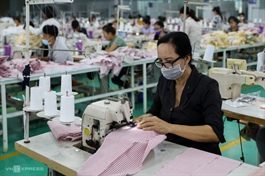Vietnam's agricultural sector on track to realize export targets
Vietnam's agricultural sector on track to realize export targets
The agricultural sector aims for an export turnover of US$45 billion next year.
Despite disrupted global supply chains due to the Covid-19 pandemic, Vietnam’s agricultural sector remains on track to realize its export target of US$44 billion and a growth rate of 2.8% this year.
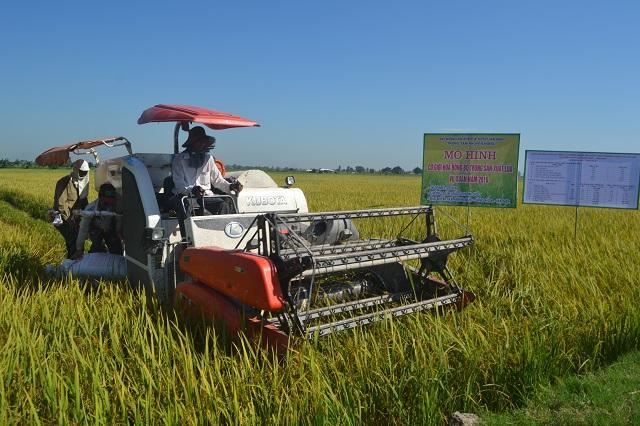
Harvesting crops at Ung Hoa District, Hanoi. Photo: Ngoc Anh |
Nguyen Van Viet, head of the Planning Department under the Ministry of Agriculture and Rural Development (MARD), gave the outlook at a press conference held on October 5.
During the first nine months of 2021, agro-forestry-fishery exports rose by 17.7% year-on-year to $35.5 billion, thanks to growing demands from major markets, including the US at $10.2 billion, or 28.6% of the total, followed by China ($6.8 billion) or 19.1%, and Japan ($2.4 billion), or 6.8%.
Viet, however, noted while agricultural exports saw a 17% growth against last year, the sector’s trade surplus declined by 55% year-on-year to $3.3 billion as imports for agricultural production surged by 41.6% to $32.2 billion.
“The Covid-19 pandemic continues to pose huge challenges to the agricultural sector, with much of the growth would depend on the performance of fishery and husbandry in the final quarter,” Viet said.
To achieve the growth target by year-end, Vice Minister of Agriculture and Rural Development Phung Duc Tien called for provinces/cities to continue supporting farmers and businesses to adapt production to the current Covid-19 situation.
“More efforts are needed to remove hurdles in the distribution of farm product in the domestic market and for exports,” Tien said.
In this regard, Tien said the MARD would strengthen cooperation with telecommunications companies of Viettel Post, VNPT Post, or firms operating delivery apps to promote digitalization in agricultural production and e-commerce.
Tien also stressed the necessity to draft an emergency plan in the event of natural disasters to minimize consequences on the economy and people’s lives.
Efforts to lift EC yellow card
At the meeting, a major issue that needs to be addressed soon is the European Commission’s “yellow card” on Vietnam’s fishing industry in relation to illegal, unreported, and unregulated (IUU) fishing since 2017.
Prime Minister Pham Minh Chinh in a government meeting in early September set the deadline for removing the yellow card in 2021 or early 2022.
Nguyen Quang Hung, deputy head of the Directorate of Fishery, noted the Covid-19 situation means it’s unlikely a delegation from the EC would visit Vietnam this year to inspect the progress.
“The EC is scheduled to hold an online meeting with the Directorate of Fishery on this matter on October 27,” Hung said.
For the time being, Hung said the Government agencies have been working with the EC to discuss the country’s efforts to combat IUU fishing for the past four years.
“There is no chance of a red card being issued against Vietnam,” Hung said, noting the entire political system is determined to convince the EC of removing the yellow card for Vietnam in 2022.
Deputy Minister Tien said for next year, the agricultural sector would continue to focus on the restructuring process, revising the existing growth model, and promoting new-style rural areas.
Given the uncertainties surrounding the Covid-19 situation, the MARS set the sector’s growth target at 2.8-3% for 2022 and export turnover of $45.5 billion.
It is estimated the rate of communes qualified as new-style rural areas to be 73% next year, along with forest coverage being kept stable at 42%.







